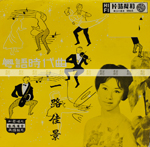In the time when Wong Jum-sum grew up, Cantonese pop music was but one of many kinds of music broadcast on radio. In a society where over 80% of the population spoke Cantonese, that came as a major surprise. Wong has a simple explanation for this. Cantonese pop grew out of traditional Cantonese music, but it could not build on the popularity of the latter in the face of severe competition. Compared to Western or Mandarin pop, it lagged behind in the areas of composition, lyrics, singing, accompaniment, recording, distribution, and marketing. Its competitors had a head start in talents, organization, and technology that took Cantonese pop more than a decade to come close.
Not everyone agrees with Wong’s diagnosis. Other scholars argue Canto pop, even in such early days, had a unique vibrancy that came from a healthy disregard of the boundaries among different traditions and genres, be they local or foreign. Early Canto pop laid a solid foundation for modern Canto pop, which went on to dominate not only Hong Kong but most Chinese communities around the world.
The story of Cantonese pop awaits careful re-writing.


作曲:呂文成
作詞:周聰
主唱:周聰、梁靜
合:踩單車 開心又風趣
周:放假好機會
梁:踩到荒郊去
合:單車鬥快 咪亂撞
當心揸呔 快到飛起去
梁:單車要避人
周:慢吓車親佢
梁:就唔係詐假意講句
合:最開心
周:拍住一直去
梁:兩個都一樣
周:天生我共你一對
梁:唔在你將我天天追
周:真開心
梁:無限趣
周:我一對
梁:他一對
合:向大路一直去一直去
踩到天邊去
合:知心兩個快樂無限
歡心相對 向住那天邊去
梁:春光最動人
周:踩到花間裡
梁:共同玩憩春心醉
合:最開心
周:拍住一直去
梁:兩個都一樣
周:天生我共你一對
梁:唔在你將我天天追
周:真開心
梁:無限趣
周:我一對
梁:他一對
























